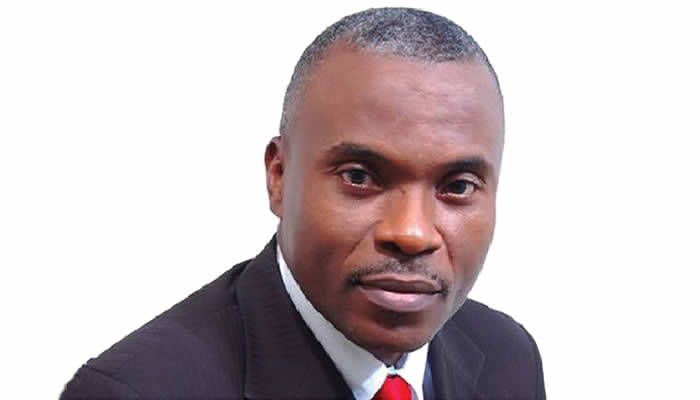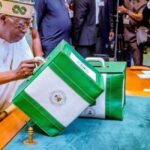
The level of disorganisation in Nigeria is so overwhelming that one wonders if it can ever be surmounted. And it is the root cause of Nigeria’s underdevelopment. A visitor to Nigeria will be shocked at it and wonder how Nigerians navigate through it. When Nigerians travel to an organised society, they feel disorientated for a while.
Take for example the issue of traffic rules. When Nigerians go abroad and do a driving test, they find it very challenging. Many fail once or even twice. It does not matter how long they have been driving in Nigeria. Imagine someone that has been driving in Nigeria for 20 to 30 years failing a driving test in a country where 16-year-olds are allowed to drive. If Nigerians pass it at the first attempt, they celebrate it like someone graduating from a university.
Why is that so? The reason is simple. Most Nigerians learn how to drive without going through a driving school. They don’t learn traffic rules and road signs. Driving in Nigeria is more of the survival of the fittest. Nigerians drive with their brawns instead of according to the rules. The issue of right of way is secondary. The person that has the right of way is the one that is most daring. Especially in cities like Lagos with notorious traffic congestion, there is the belief that gentle drivers stay longer in the traffic. Watching Nigerians drive, anybody who is used to driving in an organised society with laid-down traffic rules would wonder how Nigerians go out every day with their vehicle and come back alive.
Organised societies have their roads well marked. If two roads of equal status run across each other and there are no traffic lights there, there will be a sign stating that it is a four-way stop. On the floor of each of the four ways, there will be a bold stop sign with a line to show where each vehicle must stop. The rule is that if you see a stop sign, you must stop. It does not matter whether you are the only vehicle on the road. If you stop, you count 1,2,3, or look at all sides and proceed if there is nothing that will make you to wait more, like a pedestrian or an animal crossing the road. If there are more than one vehicle approaching the stop sign from different sides of the crossroads, the rule is that the first vehicle to get to the stop sign will be the first to move. All the vehicles move in that order. That is orderliness. That will ensure that no vehicle hits another. A traffic warden does not need to be there to enforce it.
But in Nigeria, there is always an attempt by those who believe they are faster and smarter to usurp the right of others and breach any rule because they believe that there will be no consequence.
It is the same thing that happens at traffic lights. When the red light comes on, all vehicles must stop, including motorbikes. And when the green light comes on, it is time to move. Organised societies believe that only a mentally challenged person or a suicidal person will drive when the red light is on. But it is common practice in Nigeria.
That same orderliness reflects in how people get attended to at public events. If you walk into any shop to buy anything and want to pay to a cashier, you join the queue, if there are many customers, no matter your class, status or position. Nobody even imagines that anybody would beat the line. You won’t even be attended to if you jump the queue. The same thing happens if you visit a walk-in clinic. You join the queue by the door and wait until the clinic opens. It does not matter if it is cold or warm or raining. If you don’t want to wait, then you call your family doctor and book a date, which may be one month away.
Talking about booking a date, when you need to see your physician, dentist, barber, hair stylist, or mechanic, you don’t just walk in whenever you feel like. You call and get a date and time to be attended to. Sometimes, depending on how busy such a business is, you may get a date some weeks away. And if you change your mind about the visit but fail to call at least before 24 hours to cancel appointment, you will get a bill for it. By not keeping the date, you made that spot not to be filled with a customer. The business, therefore, lost money.
But how will you be billed and expected to pay? Can’t you just disappear? No. You are registered in the system of the country and can be traced. If you dispute the bill, you can appeal it and a judgment will be given on it. But if not, you will pay to keep your name and record clean. If you are flagged as a debtor, it affects your record. There may also be other penalties.
Because your record is in the system, your birthday cannot be changed. Those who were born in the country are registered immediately after birth. That birthday is used across all platforms like passport, identity card, driving licence, tax record, health card, etc. And each person has a unique number called National Insurance Number in the United Kingdom, Social Insurance Number in Canada, and Social Security Number in the US. In Nigeria, it is called National Identification Number. During elections, citizens only need to complete an identification process and receive a ballot paper to cast their vote. When one wants to access any public service like health care or vaccination, one’s identity is verified and one gets a date to walk in at a chosen time and get the service.
In Nigeria, it is a different case. There is no document that captures all Nigerians. Only those who travel outside Nigeria are compelled to have a passport. Similarly, only those who wish to drive have a driving licence. Not every citizen has a national identity card. Nigerian banks register people and give them bank verification number. The National Identity Management Commission does its own registration and issues the national identity card and NIN. Some states do their own registration and issue ID cards. The Federal Road Safety Corps does its own registration and issues a driving licence. The Nigeria Immigration Service issues the passport. The Independent National Electoral Commission registers voters and issues the permanent voter card. Curiously, each of these registrations is independent. There is little or no connectivity between one and the other. A non-Nigerian can easily register as a Nigerian and get a passport, national identity card or voter card.
As a result, while it is easy for organised countries to trace those who commit crimes, it is difficult to do so in Nigeria. And while organised societies have stiff penalty for those who have multiple identities or conflicting personal information, Nigeria does not see it as something serious. Consequently, people tend to be more honest in organised societies because they know they can easily be traced for any infraction. In Nigeria, it is the opposite. The knowledge that offenders cannot easily be traced as well as the tendency for selective justice creates a sense of impunity and recklessness, especially among the political and business elites.
The lack of an organised system of documenting the biometrics of the citizens is part of the reason most Nigerians either don’t pay tax or pay very little tax. It is also the key reason corruption is high in Nigeria. Money can easily disappear with no trace. People can also disappear with one identity and appear with another identity. Therefore, for Nigeria to transmit from being underdeveloped to being developed, it has to aim to become an organised society. It is possible, but there are no signs yet that Nigeria is ready for the journey.
– X: @BrandAzuka





